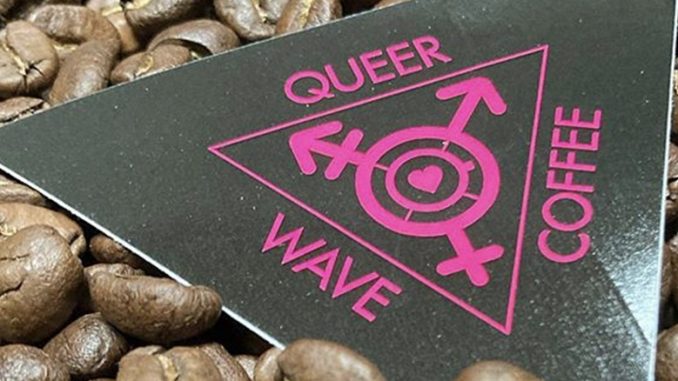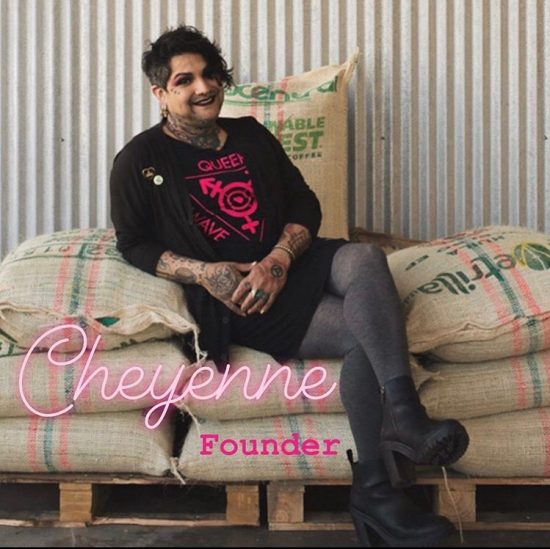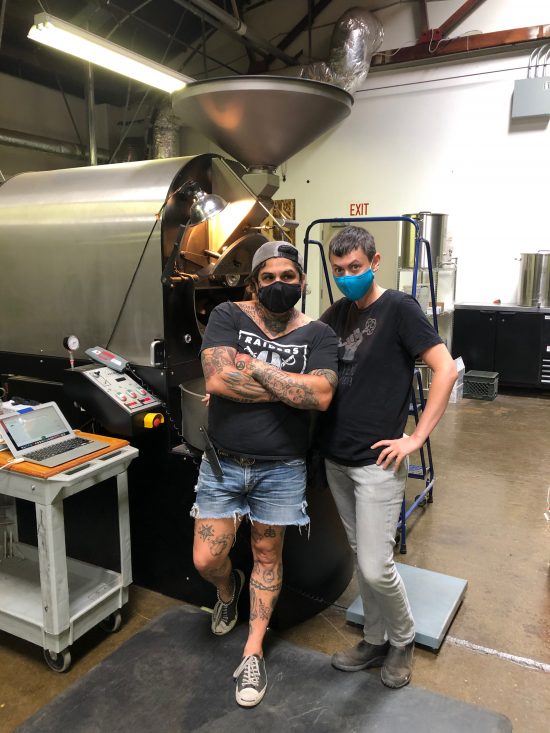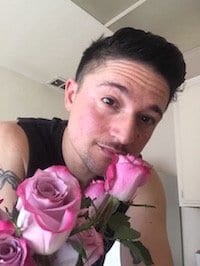
Queer-ing the roasting process with Cheyenne Xochitl Love.
BY MARK VAN STREEFKERK
BARISTA MAGAZINE ONLINE
Cover photo courtesy of Cheyenne Xochitl Love
Queer Wave Coffee (QWC) was a movement founded around the start of 2018 by Cheyenne Xochitl Love, then under a different name, as a platform to uplift LGBTQ+ people in the coffee industry. With the help of like-minded coffee folks, Cheyenne released shirts with the QWC logo, sales of which supported Queer in Coffee events at that time. At its heart, QWC always embodied a bit of a grassroots approach; the logo and branding were available to anyone who wanted to fundraise for LBGTQ+ causes, or bring awareness to queer people in coffee through whatever medium they wanted. Though initially met with a lot of enthusiasm, QWC didn’t gain traction in the way Cheyenne had hoped. “I tried to get other towns to do it, but it never took off,” she says, and shelved the idea indefinitely.
An industry legend in her own right, Cheyenne entered the world of coffee in 1993, was part of the Roasters Guild executive council, worked at Bellwether Coffee, and did consulting and training for coffee companies around the California Bay Area. She was recently the director of operations at Zocalo, but was laid off in mid-March when COVID-19 decimated the industry. Cheyenne was receiving unemployment and weathering the pandemic when friends encouraged her to return to roasting.

“I went to a place where I get my body piercings done, and my friend there who owns the shop was like, ‘You need to roast coffee. Why don’t you roast coffee? You’re so good at it. When I think of coffee I think of you.’ It just kind of amped me up,” she says. “(I thought) I’m not doing anything right now, what if I just bought some green coffee, roasted it for my friends, and just gave it to them?
“I didn’t think it was going to be special. (Then) I started thinking about it on a little bit bigger scale, and then Queer Wave Coffee came back into my mind again and I was thinking, ‘This is a great logo, I’d hate to not use this.’ It’s also something I feel really strongly about: trans people or queer people in general, and people of color or other marginalized groups suffering right now.”

She purchased two bags of green coffee from Catracha Coffee Company, had her first roast date on October 7 at Oakland, Calif.’s 444 Collaborative, and sold bags of coffee through the @queerwavecoffee Instagram account. By her second roast date she had gone through an entire 154-pound bag of Honduran coffee, and she’s already scrambling to get more.
QWC originally started with a little anarchy at heart, and the same holds true for how Cheyenne approaches roasting now. “A lot of people roast by what the industry says it needs to be. I listen to a lot of people who drink it. It’s very important to me,” she says, “There is a lot of ‘professional’ colonization that goes into this. That’s what I’m trying to get away from, that whole way. It even goes into how coffee is scored, and what makes a cup of coffee more desirable or more expensive. A really bougie, colonial way of looking at it, and that’s not what coffee is to me. Coffee is for the people.”
For Cheyenne, the queer way of roasting coffee is intrinsically linked to decolonization. Committing to buying all QWC from people indigenous to Central America is a choice that honors her own ancestry, one that was taken away from her as her grandparents assimilated into North American culture. “I’m an indigenous person and I have no idea of my ancestors. My grandparents don’t talk about any of it. I think a lot of it has to do with the boarding schools that were happening here and the shame and guilt and all the stuff that came along with colonization, and all my history was lost. The only reason why I know is I had a DNA test. I don’t know where I’m from, and I felt I really needed to be connected.”
Working with her business partner and friend Alexander Sparrow, Cheyenne plans on debuting a QWC website in the near future, an online place where people can not only buy coffee and set up subscriptions, but also a space for other LGBTQ+ people to connect, a “kind of merging with the old Queer Wave Coffee.”
For Cheyenne and other queer and trans people in coffee, the very nature of their identities has already put them at the margins. That outsider status however, is exactly where she wants to be. “I’m really big on not following status quo. I think it’s good to know, and good to have a reference to it, but I think we’re finding our own way with our gender and sexual expression and all these things, and coffee can be the same. Don’t let anyone tell you what you need to do and how you need to do it.”

ABOUT THE AUTHOR
Mark Van Streefkerk is Barista Magazine’s social media content developer and a frequent contributor. He is also a freelance writer, social media manager, and novelist based out of Seattle. If Mark isn’t writing, he’s probably biking to his favorite vegan restaurant. Find out more on his website.
